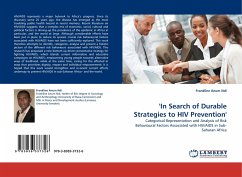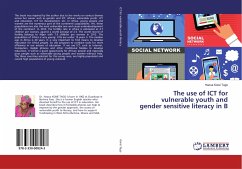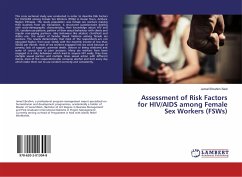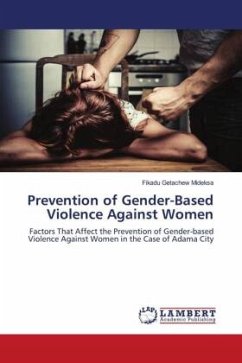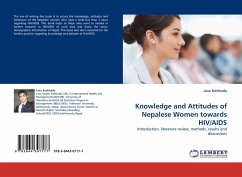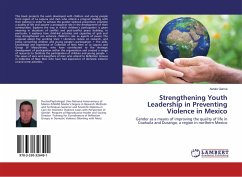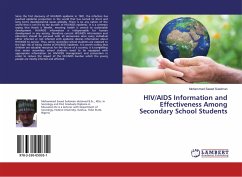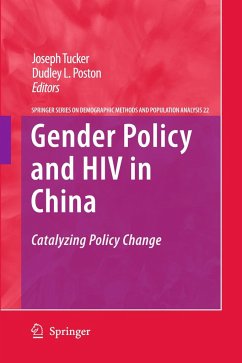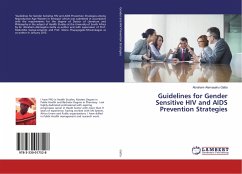
Guidelines for Gender Sensitive HIV and AIDS Prevention Strategies
Versandkostenfrei!
Versandfertig in 6-10 Tagen
37,99 €
inkl. MwSt.

PAYBACK Punkte
19 °P sammeln!
AIDS remains one of the world's most serious health challenges affecting more females than men. It could also be due to the females' status in society which could be justified by lower economic and decision making ability. The purpose of this study was to explore and describe the role of gender in the spread of HIV among women of reproductive age in Ethiopia. The study used sequential mixed method with quantitative and qualitative paradigm. During first phase of the study, health facility based descriptive cross-sectional study design was used. Data was collected from 422 respondents using a s...
AIDS remains one of the world's most serious health challenges affecting more females than men. It could also be due to the females' status in society which could be justified by lower economic and decision making ability. The purpose of this study was to explore and describe the role of gender in the spread of HIV among women of reproductive age in Ethiopia. The study used sequential mixed method with quantitative and qualitative paradigm. During first phase of the study, health facility based descriptive cross-sectional study design was used. Data was collected from 422 respondents using a structured questionnaire. Gender disparities in relation to negotiating sexual relations among the study respondents were found to be still relevant. The culture that has placed men at the helm of leadership in sexual matters is strongly upheld and that includes who recommends use of preventive measures and who regulates when and how to enter into a sexual relationship.



